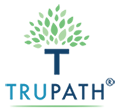Drug Addiction and Treatment
Drug addiction is a serious disease that affects millions of Americans every year. It is a complex issue without one root cause, as each person is unique in the reasons why they begin using drugs and alcohol, and the treatments that will work best for their case vary from person to person. A professional rehab program that is customized to each patient’s preferences, practical needs, schedule, mental health condition, physical health condition, etc. is the best method of addiction treatment.
The Definition of Addiction
According to the American Society of Addiction Medicine, addiction is “a treatable, chronic medical disease involving complex interactions among brain circuits, genetics, the environment, and an individual’s life experiences. People with addiction use substances or engage in behaviors that become compulsive and often continue despite harmful consequences.”
This definition hits the nail on the head, as addiction is not simply the act of ingesting drugs, it is a culmination of several issues and requires an integrated treatment that incorporates physical health care, psychological treatments, social and behavioral therapies, along with spiritual and holistic treatments that will heal the body, mind, and spirit of the person suffering from addiction.
Signs and Symptoms of Drug Addiction
Some of the signs of addiction to drugs or alcohol that are most often seen include:
- Developing a tolerance, needing to take more before feeling the effects
- “doctor shopping” in the case of prescription drugs, to get more than one prescription
- Continuing to take prescription medication even when you no longer need it
- Spending a lot of time thinking about the drug and planning to use it
- Losing interest in regular activities and hobbies, having trouble doing everyday chores, not caring so much about personal hygiene, etc.
- Feeling off, strange, or unable to get through the day without taking the drug
- Borrowing or stealing to pay for drugs, or taking drugs from others’ medicine cabinets
- Continuing substance abuse even when it negatively affects your work, friendships, relationships, and health
- Being unable to stop drug use even when you want to
Drug Addiction Withdrawal Symptoms
Common withdrawal symptoms that are seen with drug addiction may include:
- Nausea, vomiting, and diarrhea
- Headache
- Body aches and pain
- Anxiety, irritability, and agitation
- Shaking or trembling
- Appetite and sleep changes
- Sweating
- Fatigue
- Confusion
- Seizures
- Depression with or without suicidal thoughts
- Serious drug cravings
How Drug Addiction Affects the Brain
Although each drug has its unique effects on brain chemistry, the results are often the same. Drugs and alcohol affect the reward centers of the brain after entering the bloodstream, causing a flood of dopamine or other neurotransmitters that cause euphoric feelings, sedated feelings, or other pleasant sensations. Because drugs feel good, people will continue using them.
Addiction sets in as the body begins to crave the reward (developing a chemical addiction), and as a person develops a substance use disorder, the brain slows the production of these “feel-good” chemicals, causing strong cravings and withdrawal symptoms if the drugs are not being used consistently. As the brain’s reward system is being stimulated over and over, a person’s behaviors will change, habits will form, the brain is physically altered, and drug addiction is solidified in the person.
Drug Addiction Treatment
Having a drug addiction does not mean you are doomed to the life of a “drug addict”, and at TruPath drug and alcohol rehab, our team can help you stop using drugs safely, and move into long-term recovery after detox and rehab. Recovery is a lifelong process of improving your physical, psychological, and social well-being after suffering from a substance use disorder. At TruPath, we offer an extensive network of inpatient and outpatient rehab treatment centers, in which you can rest, heal, regain your health, and learn new strategies to move forward in life without substance abuse.
Levels of care we can provide include medical detox, medication-assisted treatment programs, residential (inpatient) rehab, customized outpatient treatment plans, partial hospitalization program (PHP) or intensive outpatient program (IOP) options, and aftercare programs that involve our alumni network and recovery community, with recovery resources like SMART recovery and 12-step programs (Alcoholics Anonymous or Narcotics Anonymous).
Some of the types of treatments we provide are group therapy, individual therapy, cognitive behavioral therapy, biofeedback, family therapy, dialectical behavioral health, dual diagnosis, psychodynamic therapy, case management services, life skills programs, experiential therapy, motivational enhancement therapy, and holistic therapies like meditation, yoga, and art therapy.
Please call us today to learn how to overcome your substance use disorder and move forward in your life on a positive and healthy trajectory. We can help you verify insurance or answer any questions you may have about the admissions process, our rehab programs, and drug and alcohol addiction treatment in your area.
